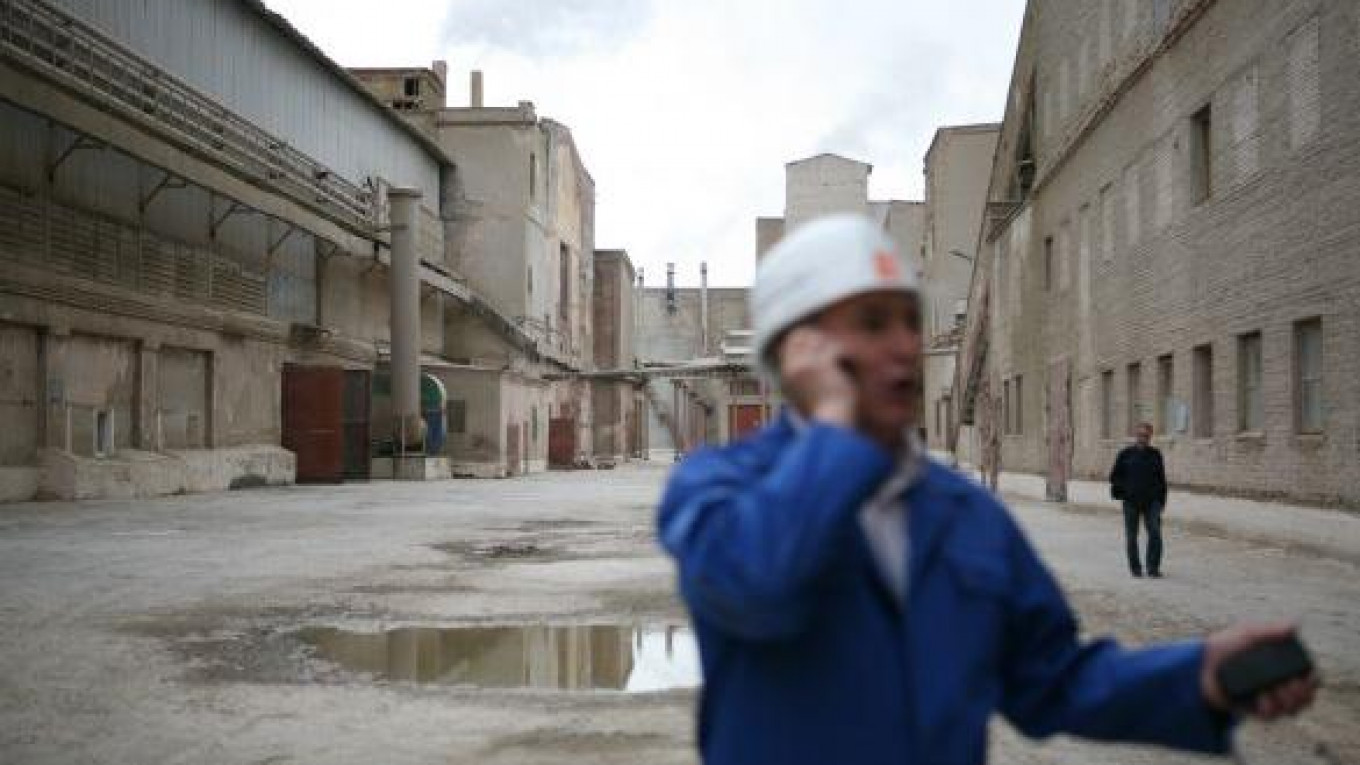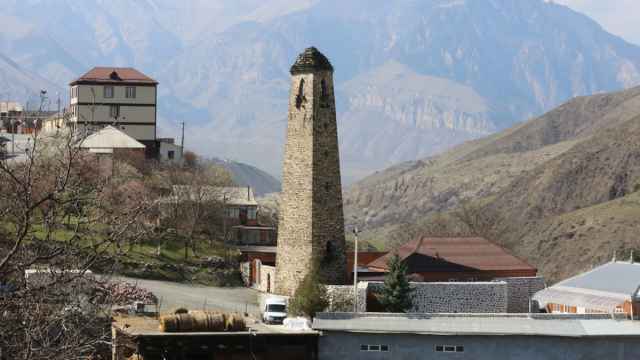The Russian town of Pikalyovo, about 260 kilometers east of St. Petersburg, has been handed a road map to diversify its economy fully by 2030, regional authorities announced on Tuesday.
In 2009, Pikalyovo became synonymous with the plight of Russia's decaying company towns, when several hundred locals blocked a federal highway in a protest against wage arrears. Vladimir Putin, then prime minister, rushed to the town by helicopter, and helped resolve the dispute, speaking to local government officials and business leaders, including the oligarch Oleg Deripaska.
Speaking on national television, Putin openly reprimanded Deripaska, once the richest man in Russia, and pressured him into accepting an agreement that ended the dispute. When the agreement was signed, Putin famously asked him to return the pen.
The incident brought to light the struggles of roughly 16 million Russians living in the country's 340 company towns, which force state officials and businesses to walk a tightrope between managing the social costs of letting these town fail economically, and the financial burden of sustaining heavy industry that dates back to the USSR.
This Tuesday, officials in the Leningrad region went before a state commission for the development of company towns headed by Deputy Prime Minister Igor Shuvalov, presenting their new development plan to diversify the economy in Pikalyovo.
According to the plan, Pikalyovo will shed its status as a company town by 2030, once 60 percent of its workforce is employed in small- and medium-sized businesses. The plan calls for the creation of almost 2,000 “high-productive jobs,” as well as 87 billion rubles ($1.3 billion) in investment.
A 2011 study conducted by Russia’s Center for Strategic Research advocated the managed decline of company towns built around terminally declining core industries. The study outlined, however, that most company towns can be economically viable with selective government support and the development of small- and medium-sized enterprises.
A Message from The Moscow Times:
Dear readers,
We are facing unprecedented challenges. Russia's Prosecutor General's Office has designated The Moscow Times as an "undesirable" organization, criminalizing our work and putting our staff at risk of prosecution. This follows our earlier unjust labeling as a "foreign agent."
These actions are direct attempts to silence independent journalism in Russia. The authorities claim our work "discredits the decisions of the Russian leadership." We see things differently: we strive to provide accurate, unbiased reporting on Russia.
We, the journalists of The Moscow Times, refuse to be silenced. But to continue our work, we need your help.
Your support, no matter how small, makes a world of difference. If you can, please support us monthly starting from just $2. It's quick to set up, and every contribution makes a significant impact.
By supporting The Moscow Times, you're defending open, independent journalism in the face of repression. Thank you for standing with us.
Remind me later.






